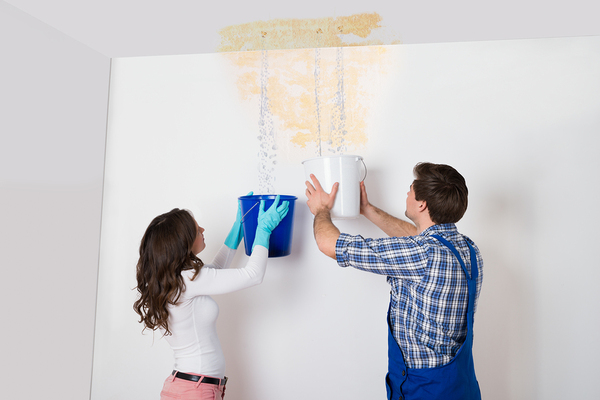Mastering the Six Most Common Water Leaks: Tips for Homeowners
Mastering the Six Most Common Water Leaks: Tips for Homeowners
Blog Article
We've found the article pertaining to Common Water Leaks In House below on the web and believe it made good sense to write about it with you over here.

Leakages not just create waste of water yet can additionally cause unnecessary damage to your residence and advertise unwanted natural growth. By looking as well as recognizing for everyday scenarios that trigger leaks, you can shield your house from future leakages as well as unneeded damage.
Encroaching origins
Many water leakages begin outside the house instead of inside it. If you notice a sudden reduction in water stress, say in your faucet, require time to go out as well as analyze your backyard. You could observe damp spots or sinkholes in your backyard, and that might imply that tree origins are attacking water lines creating water to permeate out. You can have your plumber check for breach, especially if you have trees or shrubs near your home.
Corroded water systems
As time goes by, your plumbing system ages and corrosion such as rust might start eating away the pipes. This could be the source of staining or bending on your pipes. This asks for an inspection with your plumber instantly. If our plumbing system is old, think about changing the pipes since they are at a higher danger of deterioration than the more recent models.
Faulty Pipe Joints
The factor at which your pipelines attach is frequently the weakest link in the waterline. Pipe joints can weaken with time, resulting in water leaks. Sadly, most of pipeline joints are not conveniently noticeable. If you have noisy pipes that make ticking or banging noises, particularly when the hot water is switched on, your pipe joints are most likely under a great deal of pressure. It is recommended to have your plumber examine your system once a year.
Immediate temperature level adjustments.
Severe temperature level adjustments in our pipelines can trigger them to broaden as well as contract all of a sudden. This development as well as contraction may create fractures in the pipes, specifically if the temperature level are below freezing. If you maintained an eye on exactly how your plumbing functions, it would be best. The presence of the formerly stated situations regularly shows a high danger.
Poor Water Connectors
Sometimes, a leak can be brought on by loose tubes as well as pipelines that supply your devices. More often than not, changing is what causes the loosened water Connections. You might discover in the case of a washing machine, a pipe may spring a leak as a result of drinking during the spin cycle. In case of a water links leak, you might notice water running straight from the supply line or pools around your devices.
Blocked Drains
Clogged drains pipes might be aggravating and inconveniencing, yet they can often end up triggering an overflow bring about rupture pipelines. Maintain eliminating any products that might go down your drains that might obstruct them to avoid such hassles.
All the above are sources of leakages yet not all water leaks arise from plumbing leakages; some leaks might come from roof leakages. All leakages need to be fixed right away to prevent water damages.
Leakages not only cause waste of water yet can also trigger unneeded damages to your house and also advertise unwanted organic development. By looking and comprehending for daily circumstances that create leakages, you can shield your residence from future leaks and also unnecessary damages. Today, we will certainly look at 6 leakage triggers that may be causing your pipes to leak.
At times, a leak can be caused by loose hose pipes and pipelines that provide your home appliances. In situation of a water links leak, you may notice water running directly from the supply line or puddles around your devices.
How To Check For Water Leak In Your Home
How To Check for Leaks
The average household's leaks can account for nearly 10,000 gallons of water wasted every year and ten percent of homes have leaks that waste 90 gallons or more per day. Common types of leaks found in the home are worn toilet flappers, dripping faucets, and other leaking valves. These types of leaks are often easy to fix, requiring only a few tools and hardware that can pay for themselves in water savings. Fixing easily corrected household water leaks can save homeowners about 10 percent on their water bills.
To check for leaks in your home, you first need to determine whether you're wasting water and then identify the source of the leak. Here are some tips for finding leaks:
Take a look at your water usage during a colder month, such as January or February. If a family of four exceeds 12,000 gallons per month, there are serious leaks.
Check your water meter before and after a two-hour period when no water is being used. If the meter changes at all, you probably have a leak.
Identify toilet leaks by placing a drop of food coloring in the toilet tank. If any color shows up in the bowl after 10 minutes, you have a leak. (Be sure to flush immediately after the experiment to avoid staining the tank.)
Examine faucet gaskets and pipe fittings for any water on the outside of the pipe to check for surface leaks.
Undetected water leaks can happen without the home or business owner even realizing. If you suspect a water leak, but not able to find the source. It is time to contact a professional water leak detection service, The Leak Doctor.
How To Find a Water Leak In Your Home
https://www.leakdoctor.com/blog/How-To-Check-For-Water-Leak-In-Your-Home_AE197.html

I hope you enjoyed reading our article about How to Find Water Leaks. Thanks a lot for taking a few minutes to read through our piece of content. Those who enjoyed our blog entry plz do not forget to share it. I take joy in reading our article about How to Find Water Leaks.
Click Here Report this page